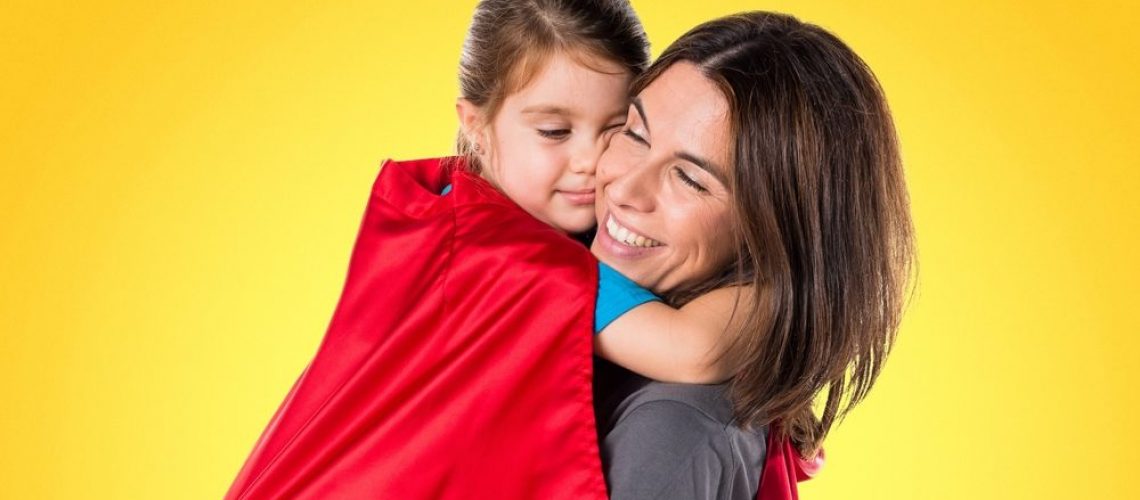I often say self-esteem is the key to success. That feeling that you can do anything. The ability to enter a room and walk directly up to someone, stick out your paw and shake their hand – knowing they’ll shake your hand right back. Taking a risk, trying something new, relying on yourself because you know, you KNOW, you can do it. That’s how I’ve defined self-esteem. I’ve advised parents to be strength based, to celebrate their children’s abilities before addressing their disabilities. But lately I’ve been considering others’ opinions that this type of self-assuredness can backfire. When something doesn’t work or we fail, those with an inflated self-view, may have a harder fall from a higher height. Yet, in order to push through tough times, it certainly helps to feel good about yourself and to feel self-reliant. For twice exceptional children and adults, it’s worth exploring the difference between self-esteem self-confidence and self-love.
For twice exceptional people the paradox is apparent; we need strong self-esteem to balance our abilities and disabilities and to ensure our convictions don’t diminish in the face of struggles. Yet because of struggles, we may have to modulate expectations so as not to set ourselves up to fail. Dialing down the expectations gives us a cushion so if we don’t succeed, we don’t see ourselves as complete failures. But couldn’t this also be detrimental to our self-worth? Wow, I can imagine someone getting stuck in this vortex; “Am I too confident? Could I possibly really do this? Should I dial down my assuredness?” This line of thought inevitably leads to giving up and thinking, “Maybe I should let someone else step in. I’m not worthy of this task.” Therein lies what researchers call, “The Imposter Syndrome,” when someone focuses more on what they feel they can’t do rather than what they can. Immeasurable self-esteem and feeling like an “imposter” are on either ends of the self-confidence continuum.
Some argue that if you see yourself as uber able, when faced with a challenge you’ve set yourself up for disappointment. In a weird way it seems the nay-sayers against self-esteem are saying that it refutes grit and staying in the game. So, for instance, when we hear the age-old argument that gifted kids can do everything it can backfire because when they can’t do something, they don’t want to try anything. Like a balloon entirely filled with air, it’s more likely to burst than its partially deflated counterpart. Even the word “gifted” is debated within the gifted community. “Is it elitist?” “Does it set up expectations?” “Does it make others resentful?” “Does it imply that the gifted experience is always positive or easy or that gifted kids can do anything without effort?”
You know what? My grandmother had a saying; “everything in moderation.” Tweaking that here, I’ll say, “everything in modulation!” Dial down the “I can do anything” to “I can do most everything” and include a measure of self-love when you find something is a struggle or you simply can’t do something. This way you’ve kept your expectations high, your desire strong, yet you are able to roll with whatever comes or doesn’t come your way. By modulating, giving yourself a healthy injection of self-love, you find yourself squarely in the middle of that imposter/self-esteem continuum; you’ve found self-confidence.
I still say that letting our kids know how great we think they are, isn’t a bad thing. It does build self-esteem and I still say self-esteem can be good. I still say you need self-esteem to succeed. But self-esteem alone is not enough. It has to be balanced with self-forgiveness and self-love. This is where self-confidence comes in. Self-confidence is modulated self-esteem that includes an awareness that you are human, fallible and that you can even laugh at yourself when you don’t reach the goal you’ve set, or others have set for you. Self-confidence is feeling okay about yourself in the face of success and struggle. Self-confidence is self-esteem plus self-love. To love yourself you have to see all of you and be okay with yourself in all your abilities and failings. I do believe this is the true cushion for the fall from great heights of self-esteem.
I maintain that it is still a good thing to let your kids know you think they are super stars. Letting a child know that you see their accomplishments (whether in the face of adversity or not), allows them to bask in the glow of their parents’ admiration. It doesn’t mean we go all “toddler gym class.” Remember those classes for infants and toddlers where everything, EVERYTHING was “Good job!” “Way to go!” “You did it!” The pendulum came crashing back after that trend and psychologists told us we set our kids up to fail…we were thinning their skin. In the face of constant praise, the experts said, lack of praise or success negatively affected our kids’ abilities to function in the real world.
Okay, okay, there seems to be some truth there, if our kids never learn to sit in their emotions, experience failure or understand that everyone has different abilities, then yeah, it’s going to be a serious wake up call when the time comes that they actually can’t do something. Likewise, since those toddler classes found any and every accomplishment worth celebration (and there were songs!), kids didn’t learn the difference between instant accomplishments and those achievements that take time and practice.
Using a twice exceptional child as an example, self-esteem is that feeling that you can enter a classroom and figure out the academics. Self-love is recognizing and being aware that sometimes social situations are challenging and that you are working on how to integrate better or control your impulses. Self-love allows you to put forth the effort and gives you a feeling of pride because you know just how hard you have to work. This balanced yin and yang, appreciating your strengths while giving yourself credit for the effort it takes to try and succeed in your struggle area, together make up Self-Confidence. This is what we need to strive for. So, while you tell your child just how great you think they are at something, let them know that the efforts they make to overcome things that don’t come easily, is where their true super powers lie. Instilling a balance that includes unfettered celebration of gifts with gratification for effort in the face of challenge – this creates an equilibrium that encourages stability.

Author: Julie F. Skolnick M.A., J.D.
Julie Skolnick, M.A., J.D., is the Founder of With Understanding Comes Calm, LLC, through which she passionately guides parents of gifted and distractible children, mentors 2e adults, and collaborates with and advises educators and professionals on bringing out the best and raising self-confidence in their students and clients.


